Anthem is a clear response to Destiny 2's mistakes, but EA must accept this game belongs to its players
After new E3 2018 details can Anthem fill the hole left by Destiny 2's gradual decline?
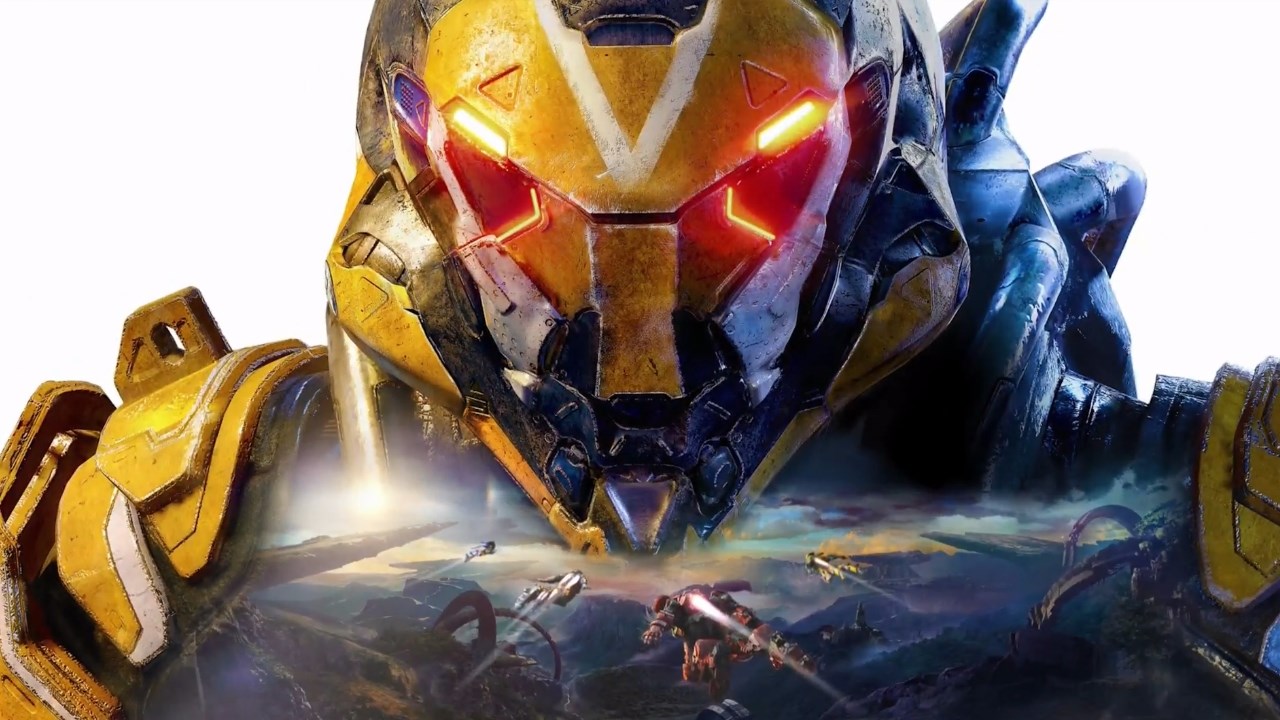
Anthem, the upcoming, Destiny-baiting, shared-world shooter from Mass Effect and Dragon Age studio BioWare, made a convincing showing at EA's E3 2018 press conference. Presenting its banging, clanging, four-player, power-suit action as a hefty blend of mechanised weight and high-flying, aerial grace, Anthem's demo was an enticing look into a huge new world, presenting refreshingly clunky, pioneer sci-fi amid a scale almost bordering on the fantastical. It was one of the earliest, distinctly promising E3 2018 games. But that's not all it was.
Reading between the lines of EA and BioWare's presentation, Anthem was also quietly, but rather candidly, an address to the stumbles of Destiny 2 since September. Later videos from the studio have since explicitly referenced the observation of "contemporaries" while developing the game, but really, the admission was unnecessary. To a close industry follower or long-time Destiny player - and I am indeed both - it was clear what was being said. "We know how Destiny 2 messed up (Star Wars Battlefront, too), and we're not going to do any of it."
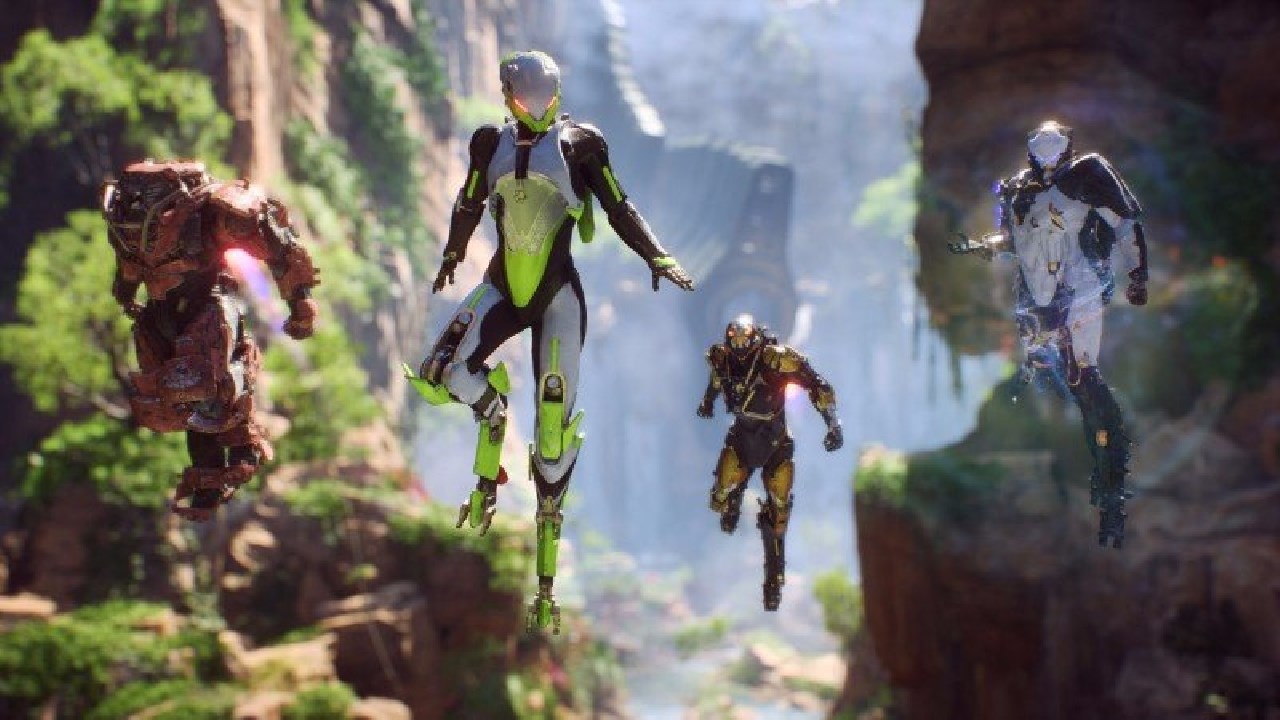
And while we've yet to play Anthem, or get a real, granular look at how its 'years' of endgame and post-story character progression will really break down beyond the vague promises on offer, the solutions BioWare has discussed are interesting. In response to the weak, truncated stories of Destiny 2's two expansions so far - not to mention the somewhat confused, vague narrative of the first game's (perhaps unfairly) lambasted vanilla campaign - Anthem touts a vast narrative world full of explicit story and deep characterization, alongside the kind of less obvious, historical background world-lore that Bungie is so rightly praised for.
In an attempt to avoid the almost inevitable disconnect between personal player story, long-term career play, and co-op, Anthem's story, NPC interactions, and dialogue paths will be explored separately from the main action, in a solo home base area. If it works, it'll be a neat response to the usual dichotomy endemic to this sort of game.
In another silent nod to the complaints of some Guardians, BioWare has labored - with conspicuous repetition - that Anthem will never push you to play in co-op. While its world activities will be tougher when taken on solo (though one would imagine rebalanced somewhat, to avoid either end of the spectrum failing to bring fun with the right level of challenge), no activity will demand teamed-up play.
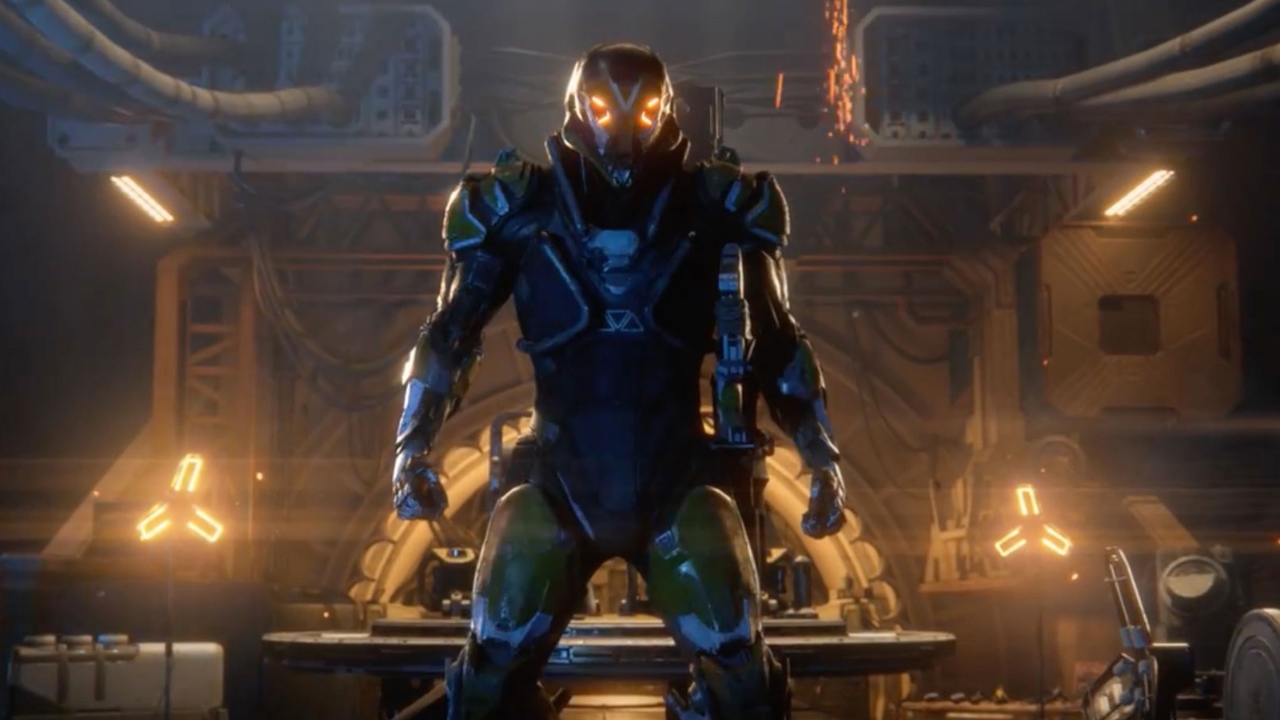
Destiny players long forced to use Reddit and external LFG sites to party up for non-matchmade, high-level content are no doubt trying to hide a look of just-suppressed envy, for all the joy that endgame Destiny co-op undoubtedly brings in the long-term. Teaming up to take on the hardest, most complex combat tasks delivers highs rarely delivered by games - but damn, it can be a hassle to arrange sometimes. It remains to be seen whether Anthem's more solo-catering design will limit its gameplay options - an equivalent of Destiny's fantastic Raids will surely be impossible without mandatory co-op - but it certainly promises to raise less friction outside of the game world.
And of course, there are loot boxes. Or rather, there aren't. Because while Anthem will include optional, cosmetic-only microtransactions, you'll always know what you're buying. No repeat dice-rolls for potentially disappointing trinkets here. That's almost definitely a response to two games: Destiny 2 (which, for its first few months, was choked with the stink of its scaled-up version of the Eververse cosmetic shop), and EA's own Star Wars Battlefront 2, which is now, justly or not, permanently synonymous with the idea of toxic loot box profiteering to a degree that borders on internet folklore.
Weekly digests, tales from the communities you love, and more
So far then, so good. If Anthem manages to also be good as an actual video game, then BioWare could be on to something big here.The hot-potato structural questions certainly seem to have been addressed satisfactorily.
It is, however, not that simple.

Because whatever Anthem might look to be doing right in terms of its big-picture format, there's one very big Destiny lesson that BioWare has to reconcile itself with, long before Anthem's release date of February 22, 2019. And it's a lesson that Bungie is now regaining a colossal amount of goodwill by reconnecting with, after six months of catastrophic stumbles. The simple fact is that once BioWare releases Anthem into the wild, Anthem is no longer simply BioWare's game. From that point on, it is a co-production between BioWare and Anthem's players, and must be treated as such along every step of the way.
Because believe me, I know. As someone coming up on his fourth year in Destiny, and a total number of play-hours he's long-since thought better of ever checking up on, I know how this works, and I know how it doesn't. A long-term, shared-world game built on such a finely balanced ecosystem of malleable action gameplay, co-op strategies, and RPG character progression has to evolve and maintain as a dialogue with its playerbase. Whatever BioWare's long-term intent for how Anthem's gameplay and larger systems will grow and change, the studio has to be ready to burn them to the ground and start again - or at least drastically remodel the blueprints on the fly - if the community takes things another way.
Because that's the thing about these games. They are alive, and whatever the planned shape of Anthem, it will only really be born into its final form once thousands of real players inhabit it and start exploring is potential. They might find ways of playing that weren't intended. They might find unexpected methods to grind, and exploit character builds, and create levels and types of power beyond what was planned.
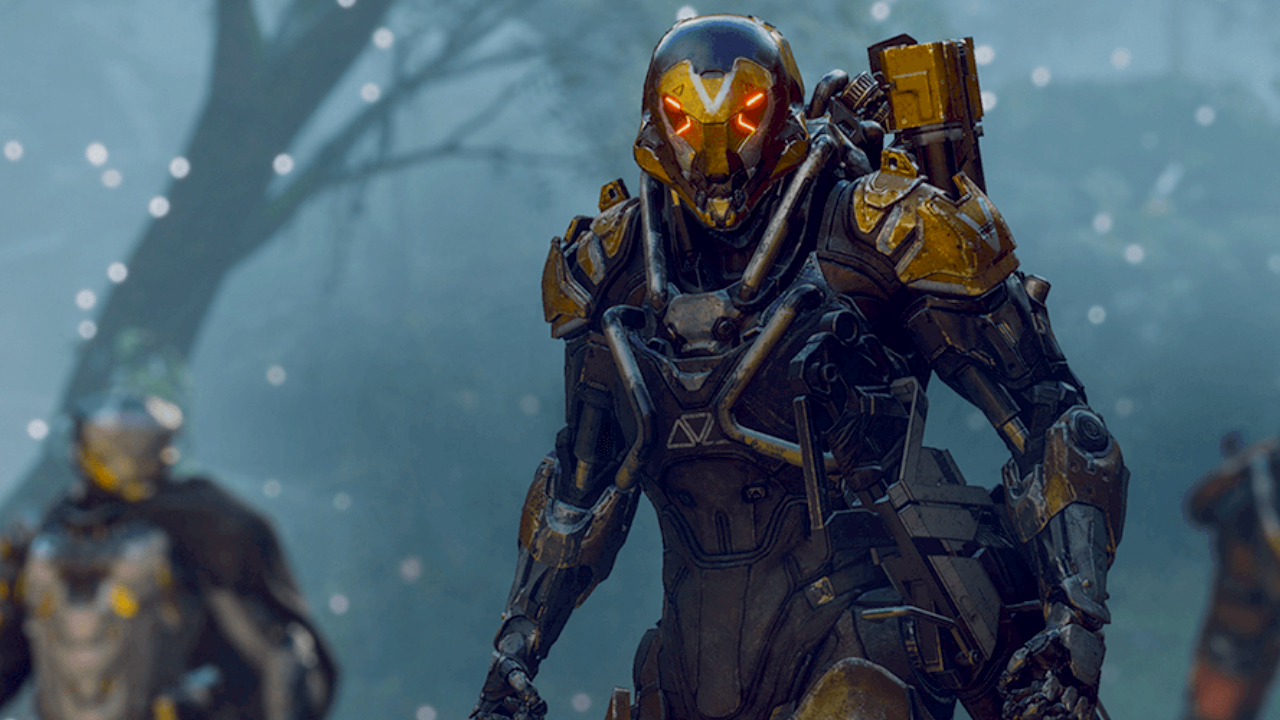
They might see better ways to do certain things, or to emphasize and explore particular types of emergent fun that perhaps weren't ever envisioned during Anthem's initial design. And BioWare needs to listen to all these happenings. It needs to look for them, and observe them, and keep track of them in granular detail. And it needs to nurture them wherever possible and appropriate, and reshape Anthem around them, quickly, and in open dialogue with its community.
The first Destiny evolved into a wonderful experience over its second and third years, precisely because Bungie steadily built and rebuilt the game through constant feedback from its players. For another example, look at Ubisoft's The Division, which was transformed from clunker to excellent long-term hobby after developer Massive Entertainment admitted its errors and redesigned the experience in close collaboration with its players.
Destiny 2, by contrast, stumbled and fell and stumbled again during its first six months, as a direct result of delivering the opposite of what its community wanted, amid a perceived air of 'Bungie knows best' from its developer. Things are rapidly improving, and excitement for September's Destiny 2: Forsaken expansion-cum-reboot is now huge. But it took a sharp 180-degree turn, encompassing design philosophy, outward attitude, and communication, to get here.
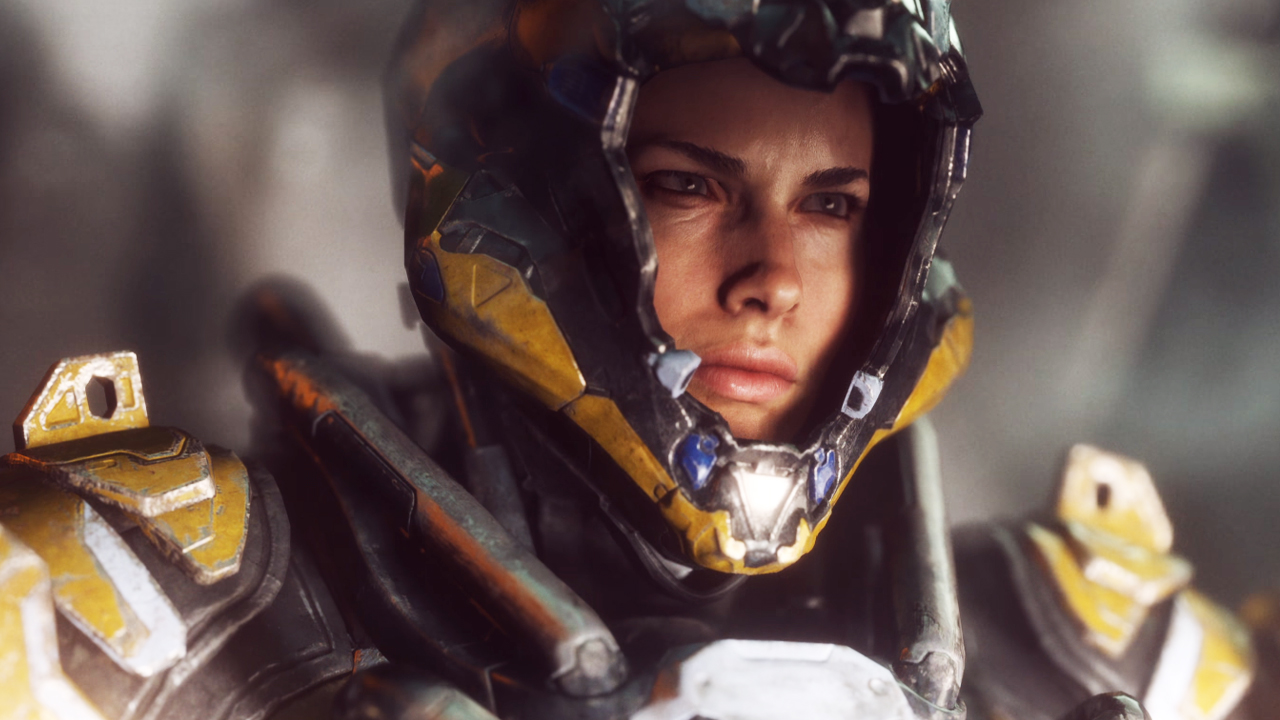
Anthem would do well to never get into a position where it has to make that turn. As a studio predominantly responsible for finite, single-player experiences, BioWare will have to be open to a very new way of thinking, and a new relationship with its players - with a new type of player - upon the release of Anthem. Anthem will be a shared-world action game, that's a given. But the sharing must occur not just between co-operative players in a virtual environment, but also between studio and community, as Anthem grows under the stewardship both, as a long-term, organically developing concern.



